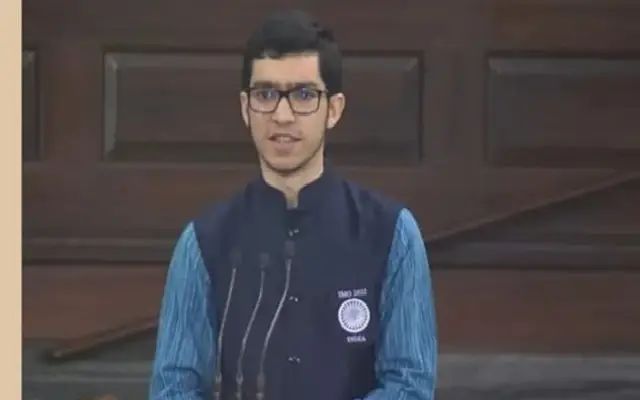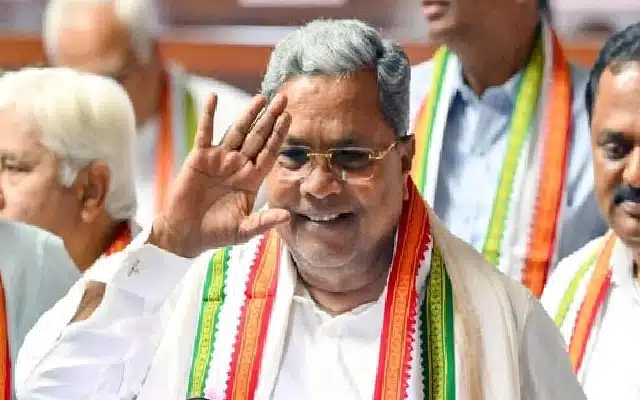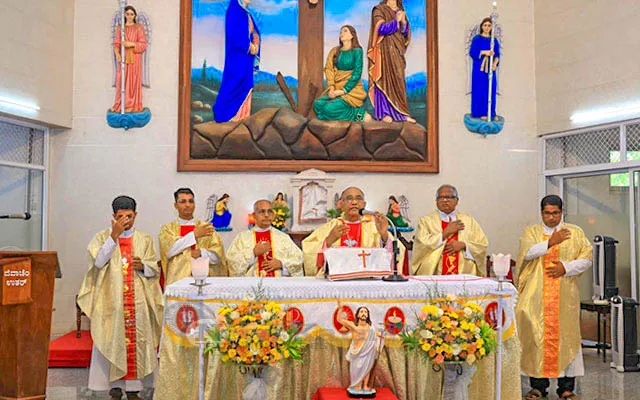
Part III – The Labour Crisis: time for Labour Law reform or regression?
With the interstate migrant crisis becoming the defining moment of India’s COVID 19 lockdown effort to contain the virus, and its implications on an economy that was already in intensive care pre-COVID 19 becoming evident, Governments are scrambling to empower Businesses and Businessmen to go for it in the most ingenious way – by suspending or overriding existing labor laws to incentivize them to get back on their feet and employ people – especially those that are returning home on foot, cycle, train, bus, and any which way – They will no have a job for sure; they may even be ostracised from their villages because of fear and stigma associated currently with COVID19 positivity and they are fruit ripe for the plucking.
The Governments are running short of cash, and they have a lot more to spend on the management of the COVID 19 menace that has swept the world and no less India. Pre COVID19, India’s GDP growth was a paltry 4.5% as compared to the lofty ideal of 7 to 8%. Unemployment was touching 7% by the Government’s own estimates and this is mainly for the organized sector.
Naturally, the dreaded virus seems like a God sent saviour to many governments both at the state and the Centre. They are using it to stifle protests – no gatherings are possible now, collect information through a compulsorily to be download app, tax what and who they can – mostly human and vehicle fuels – to raise funds, and suspend or override labor protection initiatives and legislations of previous governments to, as they say, “Create the right climate for the economy to revive and flourish”. They are also balancing it with handouts under various schemes and compelling payments where none should be due given the circumstances. But they do seem confused as to which side of their bread is buttered. Yesterday’s announcement by the Prime Minister and today’s by the Finance Minister Nirmala Sitaraman, the mysterious and gloriously acclaimed 20 lakh crore package is a case in point. But it’s clear which way the government is leaning -there was no mention of the tweaks and suspension of labor laws in both of the speeches. It was all about reviving businesses and the economy, any which way.
The whole COVID19 scenario suits Governments to a T. Raising taxes will not be begrudged – and if it is, an emotional appeal full of nationalistic rhetoric much like during DEMO is ready for a social media campaign – and suspension of labor laws which was on the ruling party’s agenda right from the start in 2014. They will never have the opportunity they have now and they have grabbed it with both hands. That it was an opportunity the Government was looking for is clear from the events in the labor sphere in the run-up to the COVID19 incidence in India.
At the end of last year, Santosh Gangwar, the Union Labour minister told PTI that as many as 44 central labor laws are most likely to be subsumed under four labor codes in 2020, making it a year of reforms as the government works to bolster investments and tackle slowdown blues. Mind you this was before the COVID blues.
“We hope that 2020 will be a year of labor reforms. The four codes will be a reality in 2020. The codes will safeguard the interest of workers and employers. We have tried to strike a balance between workers’ as well employees’ rights,” Labour Minister Santosh Gangwar told Press Trust of India. “The process of labour reforms began after the 2nd National Labour Commission gave its report in 2004. But the process was expedited in 2014,” Gangwar said. “We introduced the four codes in Lok Sabha after many tripartite meetings (taking unions and employers on board). Besides we sent all four codes for scrutiny by standing committee,” the minister said.
According to the recommendations of the 2nd National Commission on Labour, the ministry is codifying existing 44 central labor laws into four codes by simplifying, amalgamating, and rationalizing the relevant provisions of the legislation. The Labour Code on Wages has already been approved by Parliament. The law will be implemented after framing rules under the code. The remaining three codes are sent to the Parliamentary Standing Committee on Labour. “The Occupational Safety, Health and Working Conditions Code, 2019, was referred to the standing committee in October this year. Earlier this month, we also sent The Industrial Relations Code, 2019 and Social Security Code to the committee for scrutiny to the panel,” Gangwar said.
“We are going beyond codification of the labor laws. In order to ensure effective implementation of labor laws at the grass-root level for workers as well as employers, we have planned a new portal ‘Santusht’.” The portal would not only monitor the work of different bodies and wings of the ministry implementing labor laws but also give credit and discredit to officials responsible for implementing them in an upright manner.
The Codification was basically to amalgamate and categorize the existing laws – a really good initiative as there are duplicities and overlapping provisions – but while doing so, one must not be surprised if some troublesome clauses are removed or replaced. The fine print is the key as in the Government’s budget document or in an insurance policy.
The Labour Law scenario in India
Traditionally Indian Governments at the federal and state levels have sought to ensure a high degree of protection for workers through enforcement of labor laws. “Labour” is a subject in the “Concurrent List” under the Constitution of India where both the Central and State Governments are competent to enact legislation subject, however, subject to reservation of certain matters for the Central Government. Estimates vary but there are over 200 state laws and close to 50 central laws. And yet there is no set definition of “labor laws” in the country.
The Key objectives hitherto, and I stress the word hitherto have been to protect the rights of liberty (to organize themselves and relate to their employers), equality (of pay, gender and before law), life (Welfare, health and safety) and Livelihood (Pay and social security) of those employed, mainly at lower levels of the organizational hierarchy vis-a-vis their employers and the government. And so far it has been that way, though the principle that guided the legislation in the past has mostly eroded by imperfect practice by the states, and employers and the economic scenario itself.
The various labor legislation enacted by the Central Government can be classified into the following different broad categories:
- Laws relating to Industrial Relations – Industrial Disputes Act, 1947, and Trade Unions Act, 1926.
- Laws relating to Wages – Minimum Wages Act, 1948, Payment of Wages Act, 1936, Payment of Bonus Act, 1965
- Laws relating to Social Security – Employees’ Provident Funds and Miscellaneous Provisions Act, 1952, Employees’ State Insurance Act, 1948, Labour Welfare Fund Act (of respective States), Payment of Gratuity Act, 1972, and the Employee’s Compensation Act, 1923
- Laws relating to Working Hours, Conditions of Services and Employment – Factories Act, 1948, Industrial Employment (Standing Orders) Act, 1946, Shops and Commercial Establishments Act (of respective States), Contract Labour (Regulation and Abolition) Act, 1970, Inter-State Migrant Workmen (Regulation of Employment and Conditions of Service) Act, 1979, Weekly Holiday Act, 1942, National and Festival Holidays Act (of respective States) 1963, The Plantation Labour Act, 1951, The Mines Act, 1952 and The Dock Workers (Safety, Health & Welfare) Act, 1986
- Laws relating to Equality and Empowerment of Women – Equal Remuneration Act, 1976, and the Maternity Benefit Act, 1961
- Prohibitive Labour Laws – Bonded Labour System (Abolition), Act, 1976 – Child Labour (Prohibition & Regulation) Act, 1986, The Beedi and Cigar Workers (Conditions of Employment) Act, 1966, and The Sexual Harassment at the Workplace (Prevention, Prohibition and Redressal) Act, 2013
- Laws relating to Employment and Training – Apprentices Act, 1961 and the Employment Exchanges (Compulsory Notification of Vacancies) Act, 1959
These laws combined with their rules and laws of the states (it’s a concurrent subject) like the Shops and Commercial Establishments Act were designed to protect labor from exploitation. Did they do that? Hardly. Most laws were too elaborate and complex and overlapped and most of their provisions could not be implemented by any sane businessman. The government knew it and they were simply used as a means of extortion. So if they are suspended or tweaked overnight will things change? The answer is, hardly. Only there will be less litigation and conversely more exploitation legally. So why the brouhaha is the question?
What are these changes that some states have made?
The most significant changes were announced by three BJP-ruled states — UP, MP, and Gujarat — but several other states, ruled by the Congress (Rajasthan and Punjab) as well as BJD-ruled Odisha, too made some changes, although smaller in scope. Karnataka is still mulling changes.
Himachal Pradesh, Rajasthan, and Punjab have extended the maximum daily hours of work in a factory from eight/nine to 12, and allowed up to 72 hours a week in overtime. The provision of paying overtime wages at twice the normal rate would apply for working beyond these limits. Maharastra too has tweaked its laws to extend working hours.
Gujarat has made a similar change but the wages for overtime will be at the same rate (not double). Uttarakhand has increased the daily limit to 11 hours with overtime limited to 18 hours a week.
Haryana has allowed work for 12 hours a day, and up to 60 hours a week, with overtime pay. Madhya Pradesh has made similar changes. These changes have been made through notifications issued by the State governments and will be applicable for the next three months.
M.P. has also suspended most provisions of the Industrial Disputes Act, 1946 (except those related to retrenchment and layoffs) for 1,000 days for State undertakings. In addition, M.P. issued an ordinance to amend two laws. The M.P. Industrial Employment Standing Orders Act will apply to establishments with more than 100 workmen (up from the existing threshold of 50), in line with the Central Act. The ordinance also enables the government to exempt establishments from the provision of another Act that provided for a labour welfare fund.
In Karnataka, which is still mulling changes, the Labour secretary Captain Manivannan was abruptly transferred as trade bodies in Karnataka sought relaxation in norms in view of the coronavirus pandemic and consequent nationwide lockdown – but it’s very likely that changes will be brought about.
In an interaction with various industry bodies, including the Confederation of Indian Industries (CII), with state labor secretary Captain Manivannan, stakeholders raised the issues of non-payment of salaries to employees as well as inevitable layoffs and what action would that lead to. Manivannan assured the industry heads that his department would not be issuing notices to organizations that are unable to pay salaries for April. “No action will be taken against such companies. In case, there is a complaint, we will inquire if the company has the capital to make payments, if they do, through industry associations, we will ask them to pay their employees. If they are unable to do so, the matter ends there,” Manivannan said as reported by the Hindu. This was before he was transferred. We will have to await further announcements from the state government.
UP, the most populous state has made the boldest changes as it summarily suspended the application of almost all labor laws with some exceptions (safety and security of workers, provisions related to employing women and children, payment of wages on time and above prescribed minimum wages, and no bonded labor) in the state for the next three years through an ordinance. This will require the assent of the President as they might override Central Laws but obviously it has been done in consultation with them so that the government won’t land up with egg on its face later. And this is evident from the facts presented in the following paragraphs.
Is this labor reform or regression? It’s more like regression because of its nature. But it has its advocates. It is what Entrepreneurs and Industrialists want and economists advocate. Representatives of 12 employers’ associations and industry bodies on May 7 met with the Labour Minister Santosh Gangwar and asked the government to suspend labor laws for the next two to three years “to help the industry come out of the present crisis,” a statement from the Ministry of Labour and Employment said. Among the participants were representatives of the Council of Indian Employers, FICCI, ASSOCHAM, and PHD Chamber of Commerce and Industry.
Eight political parties and several Unions have panned the dilution of labor laws but who is going to listen to them? when during the interaction, the Minister said he was “sympathetic to the requirements of the industry and would try to provide all possible help for the revival of industry and reopening of the economy,” according to a statement by the Labour ministry. Yes, it’s clear that it is a priority and the rest will just have to play along.
The Associations had a list of suggestions for the Labour Minister. Among the suggestions given by the employers’ associations were relaxation of the Industrial Disputes Act in order to treat the lockdown period as lay-off, treating wages paid during this period as corporate social responsibility (CSR) funding, increasing the maximum workforce to 50% from 33% upon reopening and suspending labor laws, except those governing minimum wages, bonus and statutory dues, for two to three years. The employers’ representatives also said working hours should be increased to 12 hours a day and the industries are given an appropriate package to ensure no job losses.
All excellent suggestions. But what about the wages during the lockdown period? The Government says pay – by virtue of its March 29th order, Business says no, they don’t have the money they can pay 30% and the balance should be adjusted from Government funds and the Court says we will decide on May 15th – this mainly for the tech industry. But what about the rest?
This is what other countries are doing for workers during the lockdown. (Chart courtesy: Indian Express) The chart is self-explanatory.

Will the labor law changes have a salutary effect on the stagnating economy? It will certainly incentivize Businessmen who have exploitation on their minds. And most do. Not all.
What must be done in the Labour Arena?
Certainly, its time that India moved away from Collective bargaining to individual bargains based on skills and availability and a lower threshold of a fair wage to be specified by the Government.
It must also move away from the Contract Labour Act and other subcontracting acts towards direct employment which can be tenure based and supported by mandated exit compensations built into social security payments. This will promote employment, skill enhancements, and meet industry needs.
As regards the social security schemes in place, they are mostly adequate but need consolidation – the PF, ESI, Welfare funds, and their use must be amalgamated to produce more returns for the investor.
So the changes or the usurpation of Labour Law, which has just begun is not all bad but it is not reform – by any stretch of the imagination. True reform is moving forward according to the times not going backward because of the times.
















